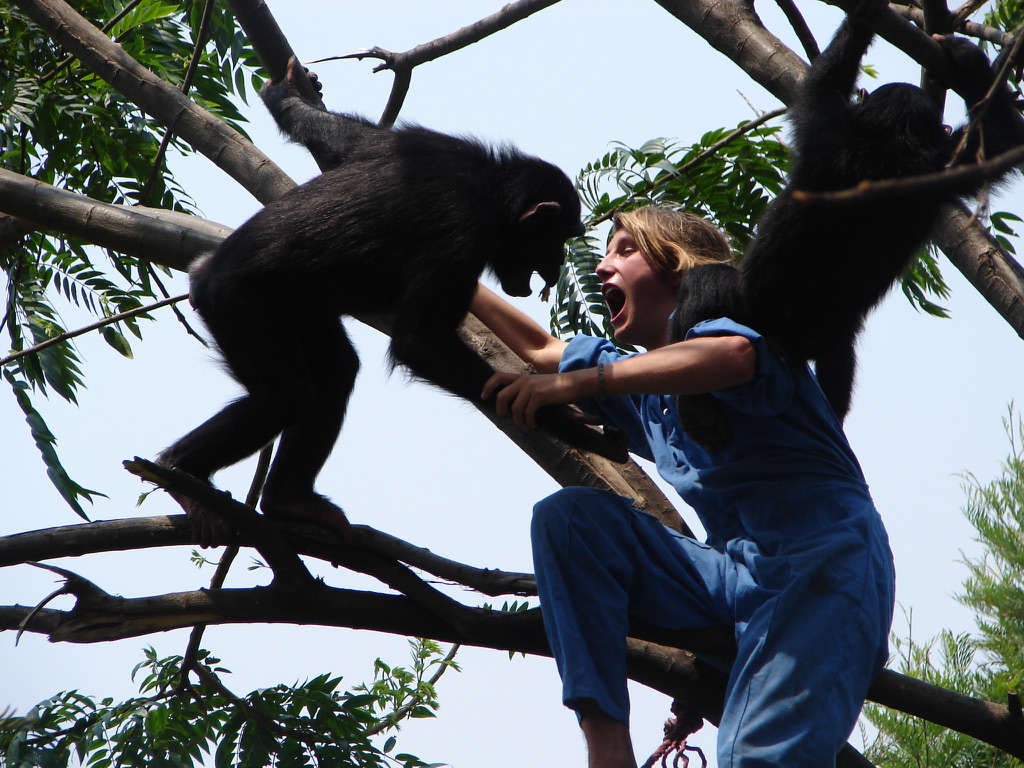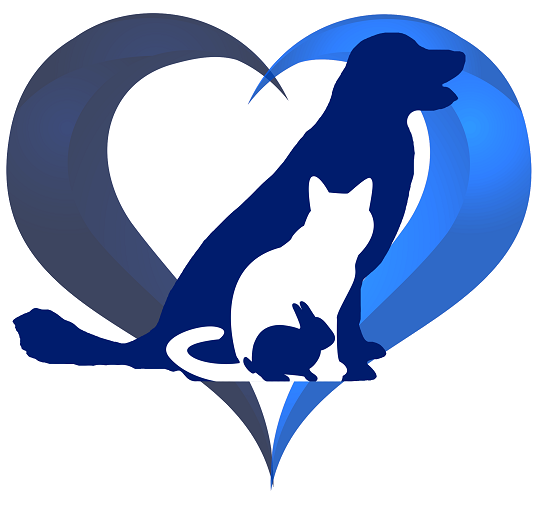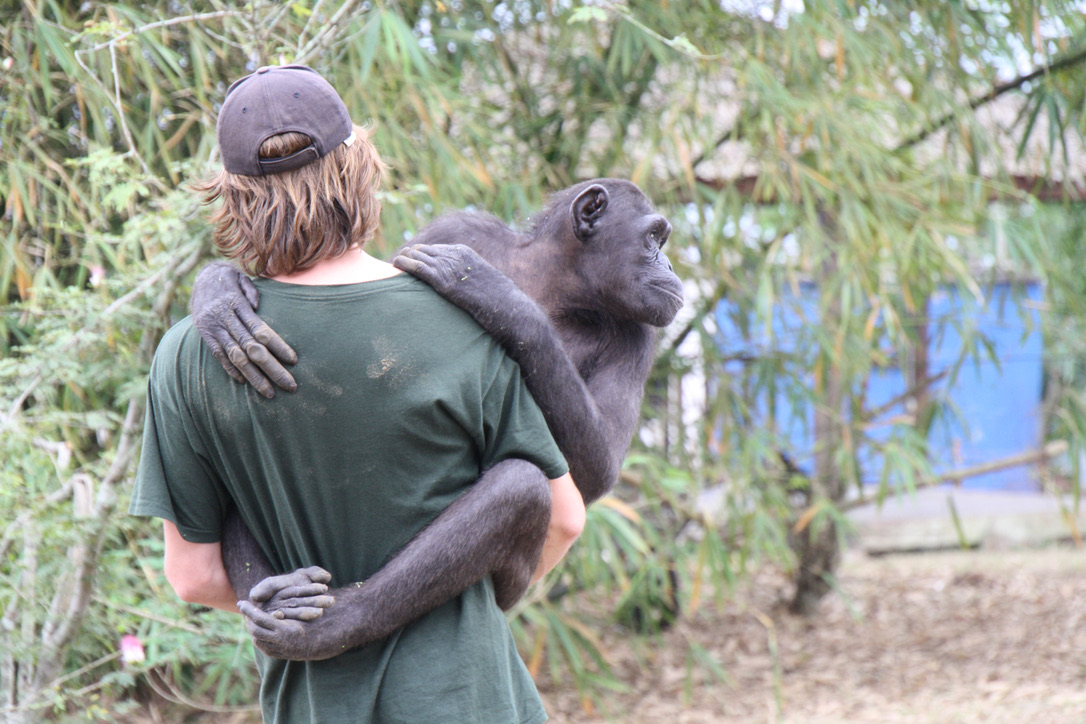First of let’s get one thing straight, chimpanzees are apes (like us), not monkeys.
With that said, they do love to monkey around, and Dr JJ knows this first hand!

On his 19th birthday Dr JJ flew as a tag-along passenger with the UN into the Democratic Republic of Congo (DRC). There he was to work in a half-way house for 3 months, helping care for 5 orphaned chimpanzees, all of which were tragic victims of outcome of the bushmeat and illegal pet trade industries.
Here he learnt of the amazing relationship that can form between humans and chimpanzees, indeed with many types of animal. You can read more about Dr JJ’s experience in The Chimpanzee Chronicles. One thing is for sure, his experiences in the DRC help forge a life-long drive to help animals.

Six years later Dr JJ was a fully fledged veterinarian and once again was drawn back to Africa and the plight of its great apes. This time he went to the JGI Tchimpounga Chimpanzee Sanctuary in the Republic of Congo. Dr JJ was immediately confronted by an extremely sick chimpanzee; Wounda, who’s life balanced upon a knife’s edge.
Severely anaemic and with drastic electrolyte imbalances, the only option to save Wounda was to perform a blood transfusion from one of the other chimpanzees at the sanctuary. Together with the JGI team and the tele-advice of Dr Atencia (the Sanctuary’s director and regular vet who was back in Europe), Wounda was intensively cared for until, several months later, she was able to be released back onto an island habitat. Read more about Wounda here.
“It’s hard to describe the feeling you get when you help an animal. I guess the term ‘veterinary science’ is quite fitting. On the one hand there is the ‘science’ part, which requires intelligence, logical thinking and problem solving; then there is the ‘veterinary’ part, which requires a connection with animals, empathy, compassion and understanding.
When you combine these, the feeling is one of incredible achievement and self-worth – you have accomplished something very few people can do, and made a positive difference to the lives of animals and other humans. That’s what I call job satisfaction!”





